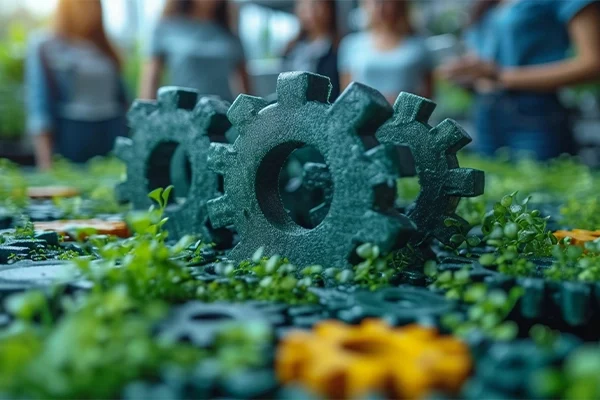Sustainability is no longer a passing trend, but a requirement in all productive sectors. You know this: in industry, every material, every tool, and every process must contribute to reducing environmental impact and improving energy efficiency. Industrial hardware, far from being a secondary area, plays a fundamental role in this transition towards a more responsible and competitive future.
Sustainable materials in industrial hardware
Advances in materials have opened up new possibilities. Instead of relying solely on conventional steel, recyclable alloys, biodegradable engineering plastics, and coatings free of toxic components are now used.
These materials not only offer strength and durability, but also help reduce the carbon footprint of industrial projects. Choosing screws, bolts, and fasteners manufactured using sustainable processes is now common practice in companies seeking international environmental certifications.
Tools that optimize energy consumption
Innovation is also present in industrial tools. You may have noticed that the new generations of electric and pneumatic equipment are designed to consume less energy and offer higher performance.
Sustainability is no longer a passing trend, but a requirement in all productive sectors. You know this: in industry, every material, every tool, and every process must contribute to reducing environmental impact and improving energy efficiency. Industrial hardware, far from being a secondary area, plays a fundamental role in this transition towards a more responsible and competitive future.
Sustainable materials in industrial hardware
Advances in materials have opened up new possibilities. Instead of relying solely on conventional steel, recyclable alloys, biodegradable engineering plastics, and coatings free of toxic components are now used.
These materials not only offer strength and durability, but also help reduce the carbon footprint of industrial projects. Choosing screws, bolts, and fasteners manufactured using sustainable processes is now common practice in companies seeking international environmental certifications.
Tools that optimize energy consumption
Innovation is also present in industrial tools. You may have noticed that the new generations of electric and pneumatic equipment are designed to consume less energy and offer higher performance.
Ergonomics also plays an important role. Lighter and more efficient tools not only reduce operator effort, they also extend the service life of the equipment, reducing the need for frequent replacements.
Hardware for circular economy processes
The concept of the circular economy is gaining ground in the industrial sector. You will see that hardware products designed to be disassembled, repaired, or recycled help keep resources in use for longer.
Modular fasteners, for example, allow entire structures to be reused without generating large amounts of waste. This philosophy not only protects the environment, but also reduces long-term costs and offers greater flexibility in projects.
Environmental certifications as a guarantee of quality
More and more customers and partners are demanding guarantees of sustainability. You know that working with hardware products that comply with ISO, CE, or equivalent standards builds trust and opens doors in international markets.
These certifications ensure that manufacturing processes meet environmental criteria, reducing the industry’s impact and guaranteeing that each part complies with high standards of safety and responsibility.
The role of committed suppliers
It is not enough for the product to be sustainable; the supply chain must be too. You will see that having suppliers who implement energy efficiency policies, recyclable packaging, and optimized logistics becomes an added value for any company.
A hardware partner committed to the environment helps you comply with increasingly demanding regulations and, at the same time, improves your reputation as a responsible company.
Conclusion
Industrial hardware is a key link in the transition to a more sustainable model. You, who work with tools and materials on a daily basis, know that choosing responsible products is an investment in the future.
Opting for recyclable materials, efficient tools, committed suppliers, and processes adapted to the circular economy not only protects the environment, but also strengthens competitiveness in a global market that increasingly values sustainability.

